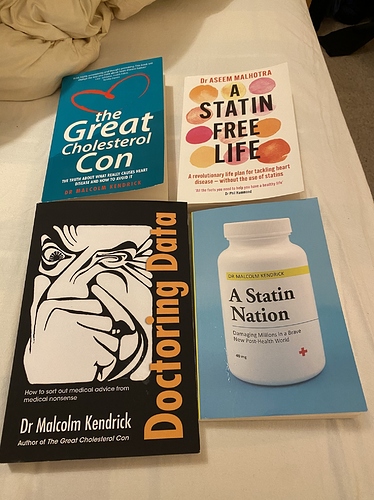I’ve seen studies used where they take the amount of LDL drop, then compare that with the “benefits”. That is, when people take statins, they experience different amounts of LDL drop, even though the statin is the same. If you figure out how much the statin dropped LDL, then put these into categories, eg, 20 point drop, 40 point drop, 60 point drop,…, you can then use that to figure out the benefits in those categories.
If the drop in LDL was what mattered, you’d expect the higher the drop, the more benefit. But that’s not what you get. You get basically a similar benefit no matter how much LDL drops.
Saw another study where they used two different amounts of the same statin, and one would think the statin with the larger amount of drug (and which lowered LDL more) would have more benefit, but it did not.
To me, these mean that the reduction in LDL probably has little to no effect.



